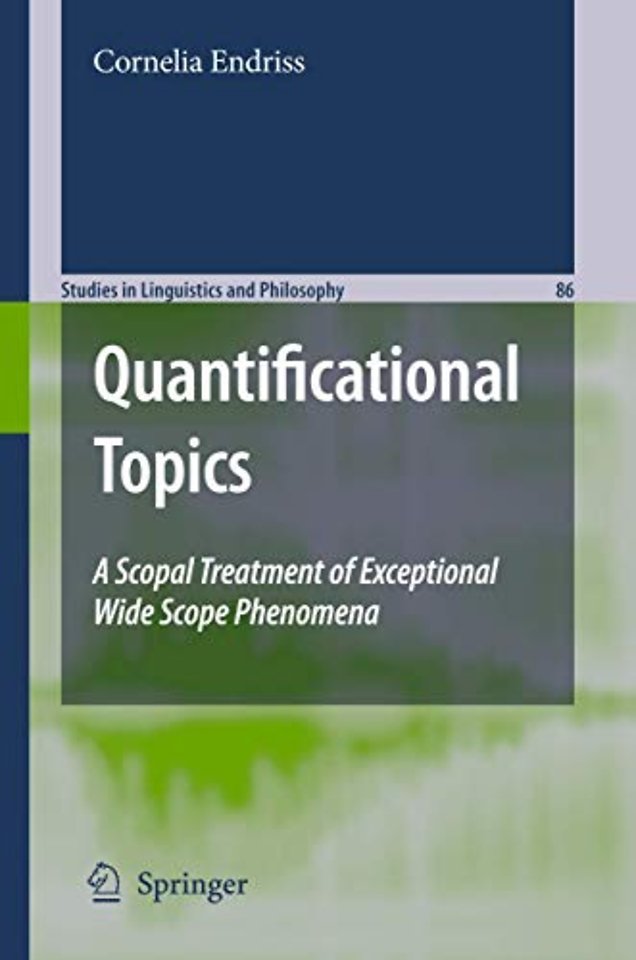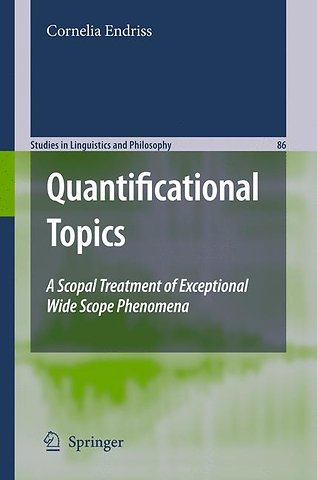Quantificational Topics
A Scopal Treatment of Exceptional Wide Scope Phenomena
Paperback Engels 2010 9789048184880Samenvatting
Addressing an issue that has puzzled the linguistics community for many years, this book offers a novel approach to the exceptional wide scope behaviour of indefinites. It is the first book explicitly dedicated to exceptional wide scope phenomena. Its unique approach offers an explanation for the fact that it is only a proper subset of the indefinites that shows this exceptional wide scope behaviour.
The author draws a careful distinction between genuine and apparent scope readings, a distinction that is usually not taken care of and has thus led to certain confusions. In particular, it is argued that functional readings have to be kept strictly apart from non-functional ones and that all proposals that use functional mechanisms to explain the phenomena at hand face severe problems.
The existing body of literature on the main issues of the book is thoroughly reviewed. This makes the book well suited as background literature for graduate seminars on those topics.
Specificaties
Lezersrecensies
Inhoudsopgave
Rubrieken
- advisering
- algemeen management
- coaching en trainen
- communicatie en media
- economie
- financieel management
- inkoop en logistiek
- internet en social media
- it-management / ict
- juridisch
- leiderschap
- marketing
- mens en maatschappij
- non-profit
- ondernemen
- organisatiekunde
- personal finance
- personeelsmanagement
- persoonlijke effectiviteit
- projectmanagement
- psychologie
- reclame en verkoop
- strategisch management
- verandermanagement
- werk en loopbaan

